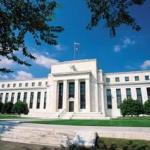 High-risk investing is rewarded with higher returns when the financial tide is rising. The vast sea of liquidity hides the hazards and perils of a rock bottom reef. Madmen and lunatics get rich. But when the tide turns…watch out…
High-risk investing is rewarded with higher returns when the financial tide is rising. The vast sea of liquidity hides the hazards and perils of a rock bottom reef. Madmen and lunatics get rich. But when the tide turns…watch out…
“You only find out who is swimming naked when the tide goes out,” remarked Warren Buffett back in 2001. Since mid-May the DOW is down nearly 2,000 points. At this rate, the receding tide will soon expose a multitude of skinny-dippers.
What we mean is, a big hedge fund or pension fund will soon be caught with its pants down. Perhaps it will be billionaire David Einhorn. His Greenlight Capital hedge fund is already down nearly 15 percent in 2015. While it’s still too early to tell if Einhorn’s swimming naked…the water line has dropped significantly.
But it’s not just the high risk hedge funds with something to hide. Pension funds, seeking higher yields, have been swimming with hedge funds. They didn’t have much choice.
The Fed’s artificially pinned Treasury yields down to an absurdly low rate for over 80 months. This has forced pension fund managers out of low-risk, vanilla, assets. They were compelled to buy riskier assets to meet their funding targets.
Bad Assumptions
But, alas, pension funds are now getting the scare of a receding tide. Thus, by extension, millions of retirees who’ve paid into pension funds their whole careers may be unwittingly swimming naked too. Reuters has the particulars…
“Based on data from the Federal Reserve, the funds [U.S. state and local authority public pension funds] are sitting on nearly $4 trillion in assets that are more than 70 percent exposed to equities and other riskier assets, such as commodities and hedge funds. And some states with massive pension funding deficits, such as Illinois, are likely most in danger of suffering big losses given their risk profiles.
“Since the financial crisis, many public pension funds have increased their exposure to hedge funds and other higher-risk assets to meet ambitious investment return targets. Most funds assume a rate of return of 7-8 percent a year, according to a May report by the National Association of State Retirement Administrators. Those assets can also take a big hit when equity and related markets plunge.
“At the same time, they have cut back on safer assets, such as U.S. government debt and other lower-risk fixed income investments, which are not expected to provide big returns in the next few years.”
Do you appreciate the cause and effect? Through cheap credit policies that were pursued to boost the economy, the Fed guided the retirement dreams of millions of pensioners out further and further onto a brittle tree branch. A sustained stock market collapse could wipe out $10 trillion – or more – of wealth accumulated during a lifetime of service.
Good Riddance
In spite Wednesday’s and Thursday’s reprieve, the stock market is deflating. Investors are dumping stocks at a record pace. They remember what happened last time the sky fell…and they’d rather sell early than late.
At the time of this writing, the CNN Money Fear & Greed Index is flashing extreme fear. According to Credit Suisse, July and August mark the first two-month stretch since the end of 2008 where retail investors pulled money from both stock and bond funds. On Tuesday, stocks got off to their worst start to September in 13 years.
Make no mistake, the tide’s receding. What’s more, there’s nothing you can do to stop it. So why not stand to the side and welcome it with a smile?
Central bank policies of mass money debasement are doomed. If not, they should be. Stocks, puffed up by an accelerating stream of Fed gas, cannot go up forever. Similarly, government deficits cannot be rolled over year after year indefinitely.
“If something cannot go on forever, it will stop,” says Herbert Stein’s Law. Of course, knowing when exactly something that cannot go on forever will stop is unclear. But we are certain, with each passing day its end is getting closer.
Good riddance.
Sincerely,
MN Gordon
for Economic Prism




